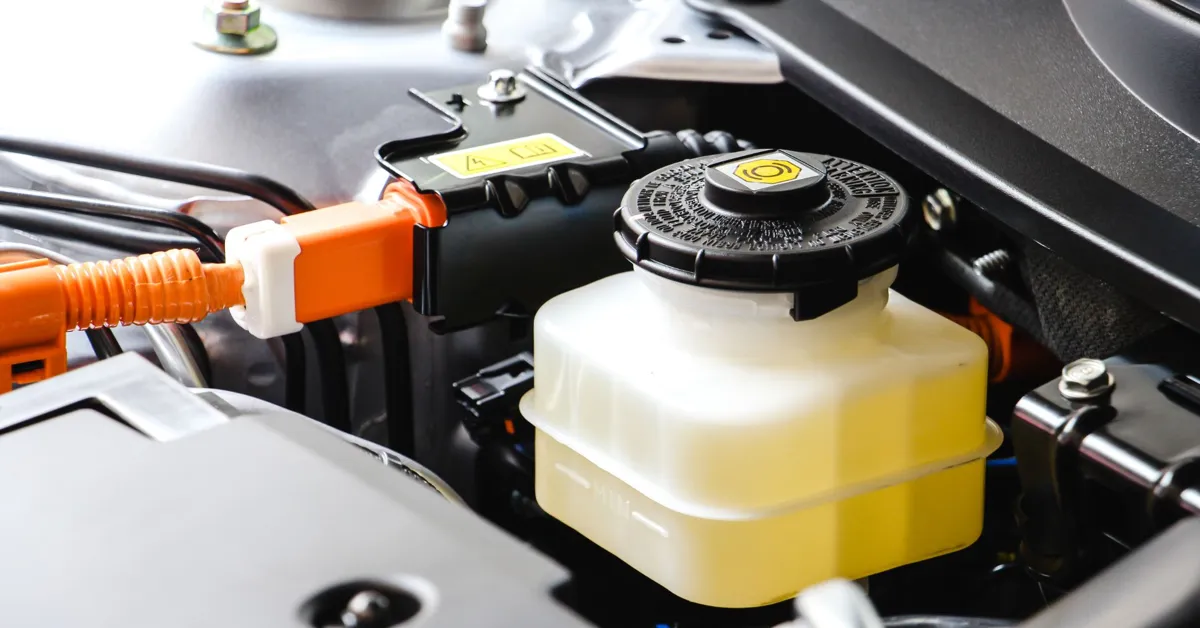As car owners, we often overlook the importance of regular brake fluid maintenance until it’s too late. But what happens to brake fluid over time? It’s a question that can have serious consequences for the safety of our vehicles. Imagine a world where your brakes suddenly fail while driving on a busy highway.
This scenario may seem far-fetched, but it’s a reality for many drivers who neglect to check and change their brake fluid regularly. In this blog, we will delve into the effects of aging brake fluid and why it’s crucial to stay on top of this simple yet crucial maintenance task. Don’t let brake fluid become the silent killer of your car’s braking system. Let’s dive in and find out more.
Key Takeaway
- Brake fluid is often overlooked but plays a crucial role in a vehicle’s braking system.
- Brake fluid can break down over time due to exposure to heat and moisture.
- As brake fluid ages, its boiling point decreases, and its viscosity increases, affecting its performance.
- Old brake fluid can lead to decreased braking performance and potential damage to the braking system.
- It is generally recommended to change brake fluid every 2-3 years or every 30,000 miles.
- Regularly checking and replacing brake fluid is essential to ensure optimal vehicle safety and performance.
Signs That Your Brake Fluid Needs to Be Changed
What Happens to Brake Fluid Over Time: The Surprising Truth Revealed Brake fluid is an essential component in any vehicle’s braking system, responsible for transmitting the force of your foot on the brake pedal to the brake pads and ultimately slowing down or stopping your car. But have you ever wondered what happens to this crucial fluid over time? As with any liquid, it is subject to changes and degradation that can affect its performance and ultimately compromise your safety on the road.
- The Chemistry Behind Brake Fluid: To understand what happens to brake fluid over time, we first need to understand its composition. Brake fluid is a type of hydraulic fluid, usually made of glycol-ether or silicone-based compounds, that is designed to have a high boiling point and low compressibility. This allows it to withstand the high temperatures and pressures within the brake system and maintain consistent performance.
- Contaminants and Moisture: One of the most significant factors that can affect brake fluid over time is contamination. As the fluid circulates through the braking system, it can pick up debris, dirt, and other contaminants that can compromise its effectiveness. Additionally, moisture can also find its way into the system, either through the air or from water absorbed by the fluid itself, leading to corrosion and potential brake failure.
- Brake Fluid’s Shelf Life: Unlike other automotive fluids that typically have a recommended replacement interval, brake fluid’s shelf life depends on several factors, including its quality, type, and storage conditions. Generally, brake fluid should be replaced every 2-3 years to ensure its optimal performance and avoid potential safety hazards.
- The Dangers of Old Brake Fluid: As brake fluid ages, it can become less effective in transmitting force and resisting boiling, potentially leading to brake fade or failure.
Additionally, as moisture and contaminants accumulate, they can cause corrosion and damage to critical components in the braking system, resulting in costly repairs and compromised safety.
So, what can you do to ensure your brake fluid stays in top condition? Regularly checking and replacing your brake fluid according to your vehicle manufacturer’s recommendations is crucial. Also, keeping an eye out for any signs of brake fluid contamination, such as a darker color or a burning smell, can help you catch potential problemsearly on.

How Often Should You Change Your Brake Fluid?
The Mysterious Journey of Brake Fluid: Unraveling its Changes Over Time Have you ever thought about the small yet essential component that helps your car come to a stop smoothly? Yes, we are talking about brake fluid. It may seem insignificant, but it plays a crucial role in your vehicle’s braking system. You may have heard of the importance of changing your brake fluid periodically, but have you ever wondered why? What happens to brake fluid over time that makes it necessary to replace it? Join us on a captivating journey as we uncover the secrets of this mysterious fluid and its changes over time.
Buckle up, and let’s dive into the world of brake fluid.
- Unveiling the Basics: What is Brake Fluid?
It is a vital component of your vehicle’s braking system, and without it, your car would not be able to come to a halt.
- The Effects of Time: What Happens to Brake Fluid Over Time?
Over time, brake fluid can become contaminated with dirt, debris, and moisture, which can affect its performance and potentially damage your car’s braking system.
- The Consequences: Why is it Necessary to Replace Brake Fluid?
It can also cause corrosion and damage to vital components of the braking system, such as the brake lines and calipers. This can result in costly repairs and, more importantly, compromise your safety while driving.
- Prevention is Key: How Often Should You Change Your Brake Fluid?
The frequency of brake fluid changes can vary depending on the type of vehicle and driving conditions. Generally, it is recommended to change your brake fluid every 2-3 years or every 30,000 miles. However, it is best to refer to your vehicle’s manual for specific recommendations.
what happens to brake fluid over time
| Brake Fluid | Over Time | Information |
| Chemical Properties | Breaks down | Over time, brake fluid can break down due to heat and moisture exposure. |
| Boiling Point | Decreases | As brake fluid breaks down, its boiling point decreases, making it less effective at high temperatures. |
| Viscosity | Increases | Old brake fluid can become thicker and more viscous, making it harder for the fluid to flow through the brake system. |
| Brake Performance | Deteriorates | As brake fluid ages, it can lead to decreased braking performance and potentially put the driver at risk. |
| Recommended Change Interval | Every 2 years | It is generally recommended to change brake fluid every 2 years to ensure optimal brake system performance. |
Frequently Asked Questions
How does brake fluid degrade over time?
Brake fluid degrades over time due to exposure to moisture, heat, and air, which can cause it to lose its effectiveness.
What are the signs of brake fluid going bad?
Some signs that brake fluid may be going bad include a spongy brake pedal, longer stopping distances, and a darker color of the fluid.
Can old brake fluid damage my car?
Yes, old brake fluid can damage your car by causing corrosion in the brake system, leading to brake failure.
Is it necessary to replace brake fluid even if the car is not used often?
Yes, brake fluid can still degrade over time even if the car is not used often, and it is important to replace it regularly to maintain the safety and performance of your brakes.
Conclusion
We can see that it is a crucial aspect in maintaining the safety and functionality of a vehicle’s braking system. As brake fluid ages, it can become contaminated and lose its effectiveness, leading to potential brake failure. Regular maintenance and timely replacement of brake fluid is essential for ensuring the safety of both the driver and others on the road.

Leave a Reply